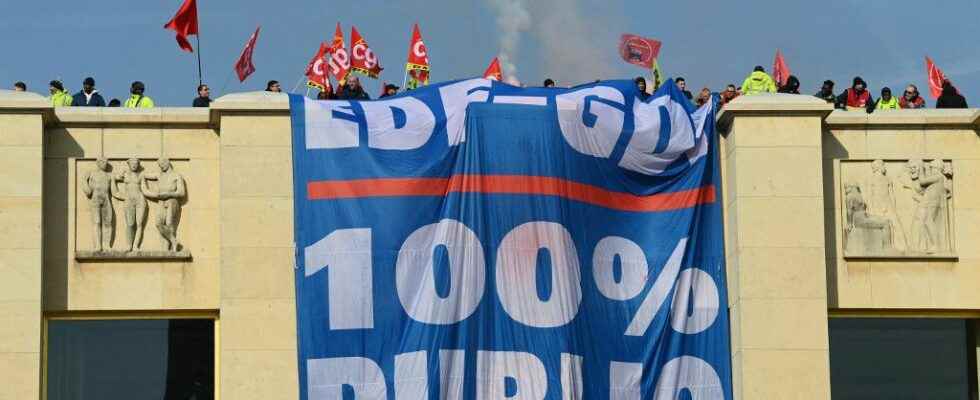The debates were electric. The National Assembly adopted, Thursday, February 9, in first reading and against the opinion of the government, a socialist text for a “nationalization” of EDF without risk of “dismantling”, but also for a tariff shield extended to artisans, especially bakers. This is a significant victory for the Socialists, who relied heavily on the adoption of this text, soon to be studied by the Senate.
Points of order and interruptions punctuated the start of the session, with opposition deputies accusing the majority of “obstructing”. The presidential camp protested against the retention in the text of an article to extend the energy tariff shield to more beneficiaries, and in particular artisan bakers. They consider it contrary to the Constitution because they add a financial burden for the State, which the deputies cannot constitutionally do. The elected representatives of the majority therefore left the hemicycle before the vote on the text of deputy Philippe Brun, which was therefore adopted with 205 votes to 1.
A “conspiratorial” and “useless” bill, according to the executive
“This bill is useless, because it aims to nationalize a company that has been 96% state-owned for three days. Nationalization, we launched it six months ago, and in a few weeks we will be at 100%”, argued the Minister of Industry, Roland Lescure at the microphone of Sud Radio this Friday, referring to the government’s takeover bid to increase to 100% of the capital of the electricity giant. . According to the Minister, this proposal is “conspiratorial”, because “we are credited with intentions that the government has very firmly denied for several months. We do not want to dismember or dismantle EDF, we want to develop it” around nuclear power in particular, he added.
Roland Lescure also described the text as “contrary to European law”, because it “undermines” the “conclusions of the European summit in Barcelona in 2002”, when Lionel Jospin, a socialist, was Prime Minister and “Jean-Luc Mélenchon , government minister.
Conversely, the representatives of the staff of EDF and the manager of the electricity distribution network Enedis “are delighted” with the vote on this bill, in which they see “a first victory towards the return of an energy 100% public, independent, decarbonized and accessible”, they indicate in a joint press release from the CSEC (central social and economic committee) of the two companies.
Like the initiators of this text, they see in the takeover bid launched by the government on the capital of EDF not a desire to renationalise the energy giant, but a way of carrying out a “nationalization”, which would not be an “open door to a new project to dismantle EDF”.
“Hercules” still in the minds
Bercy argued on Wednesday that the state held “95.82% of the capital”, the rest of the operation being suspended to a decision of the Paris Court of Appeal on shareholder appeals. But part of the opposition suspects the executive, despite its recurring denials, of not having really given up on “Hercules”, a controversial EDF restructuring project, involving the separation of nuclear, hydroelectric and renewable activities.
“We do not want Hercules or Heracles, whatever the name” of a project of “dismemberment” of EDF, supported the chairman of the Finance Committee, Éric Coquerel (LFI). The text therefore plans to engrave in stone the activities of the operator. “Bercy will no longer have a free hand. The future of EDF will now be discussed before the National Assembly”, summed up the ecologist deputy Charles Fournier.
